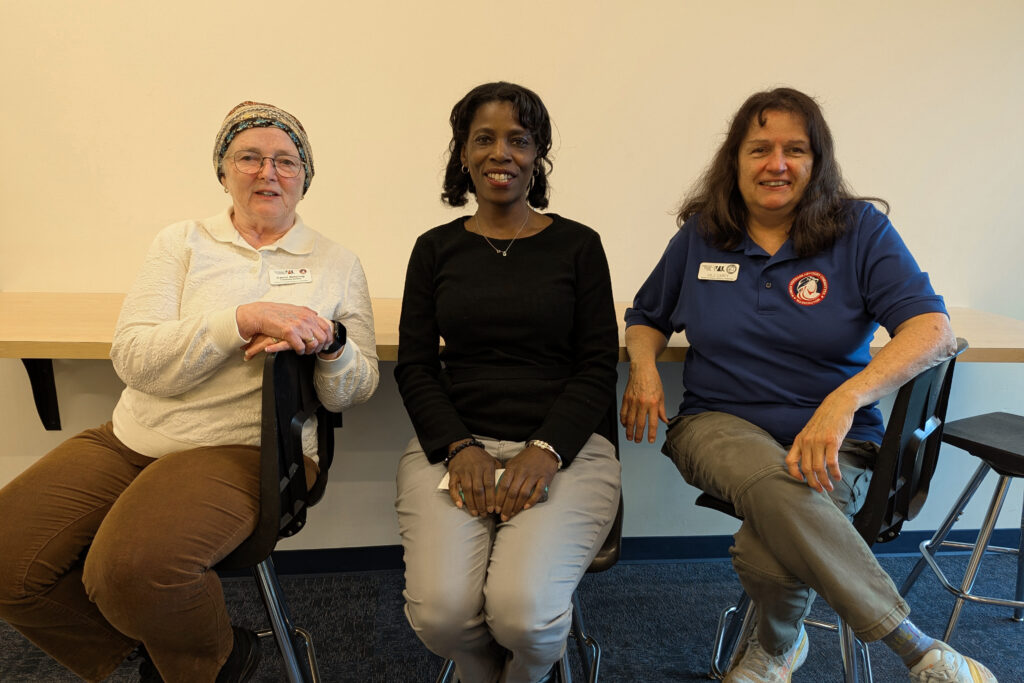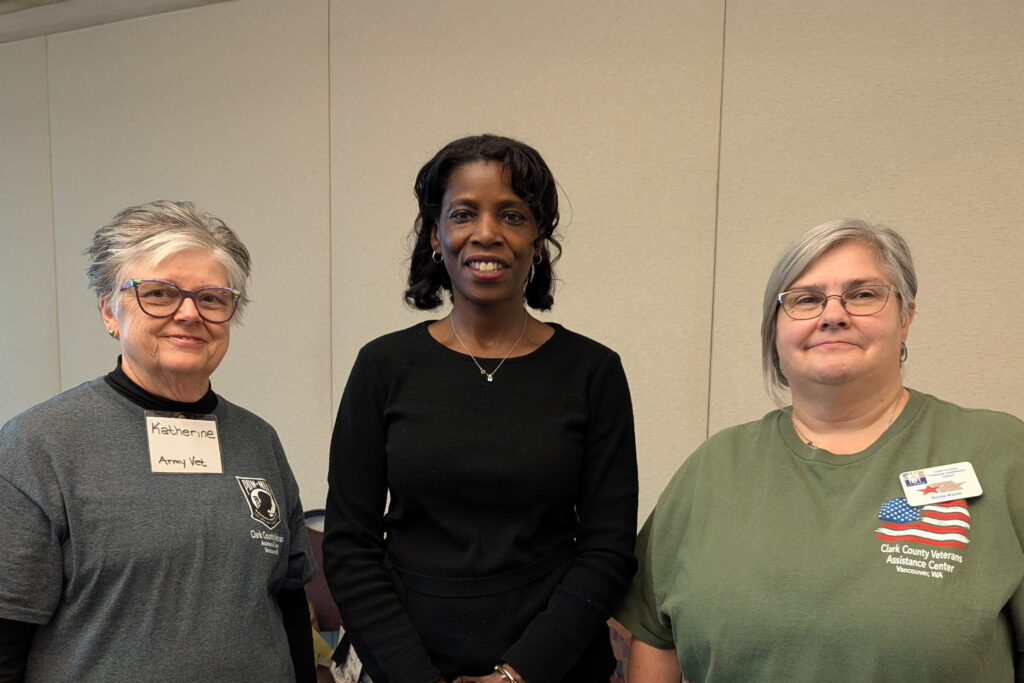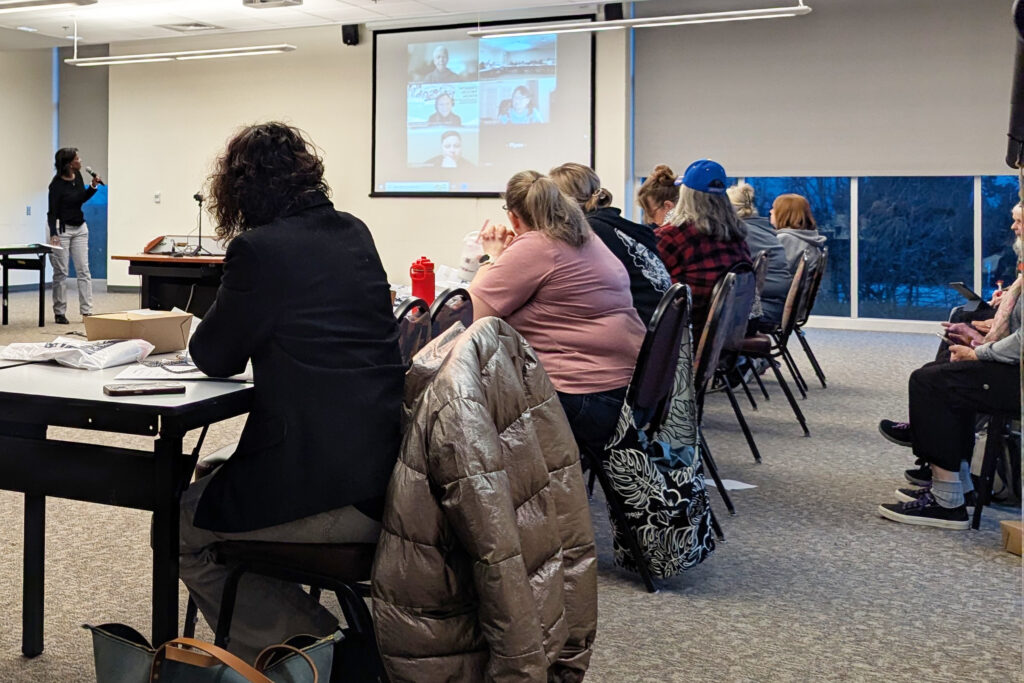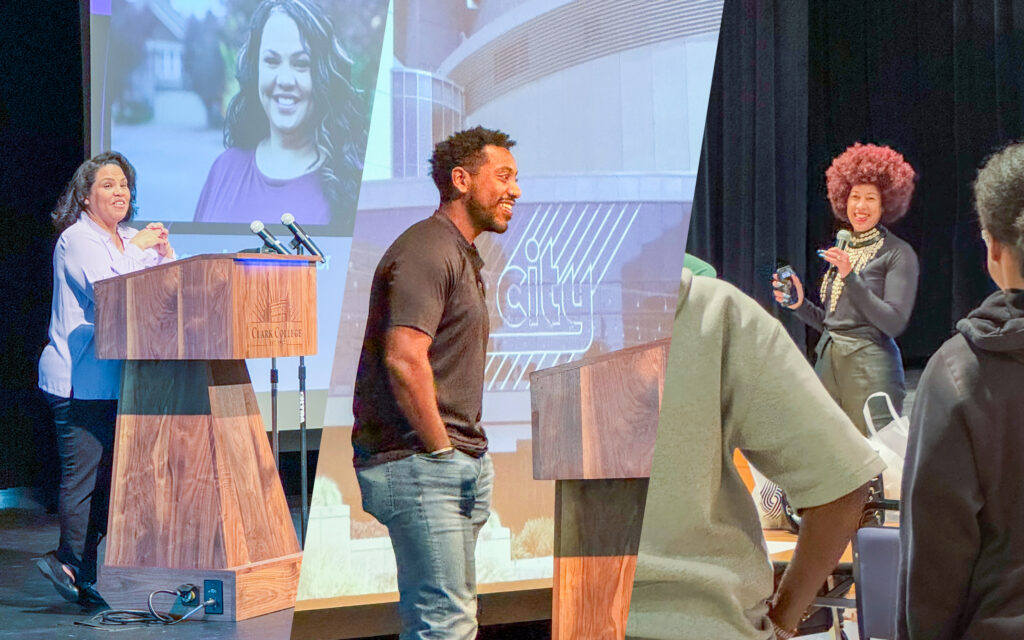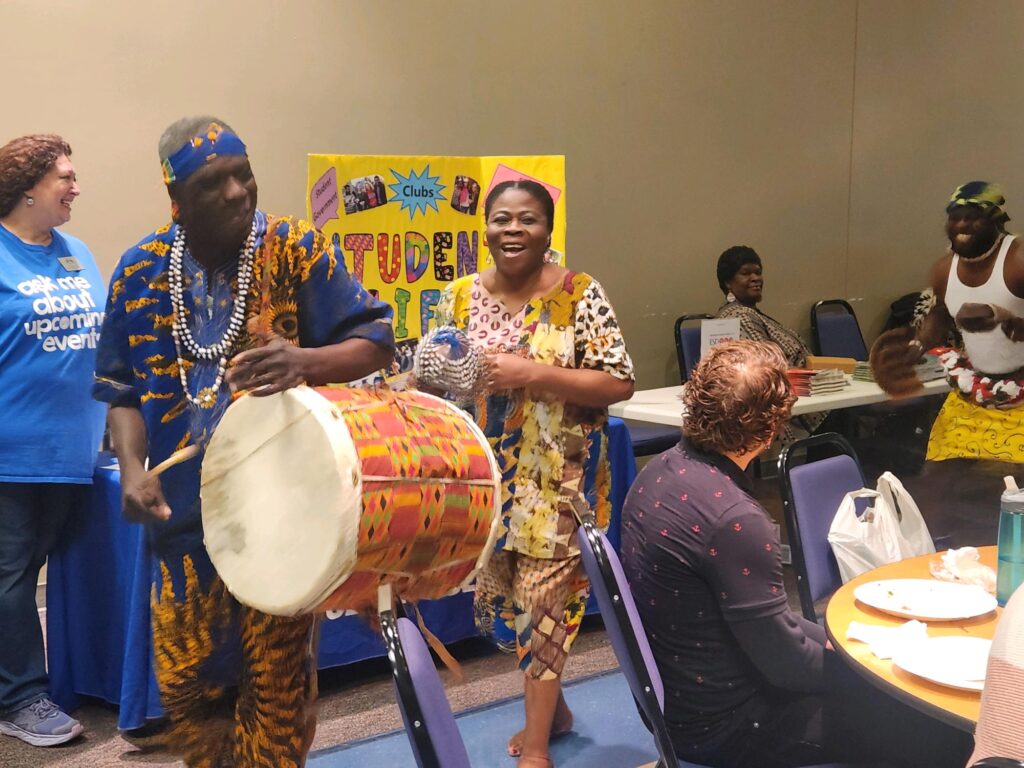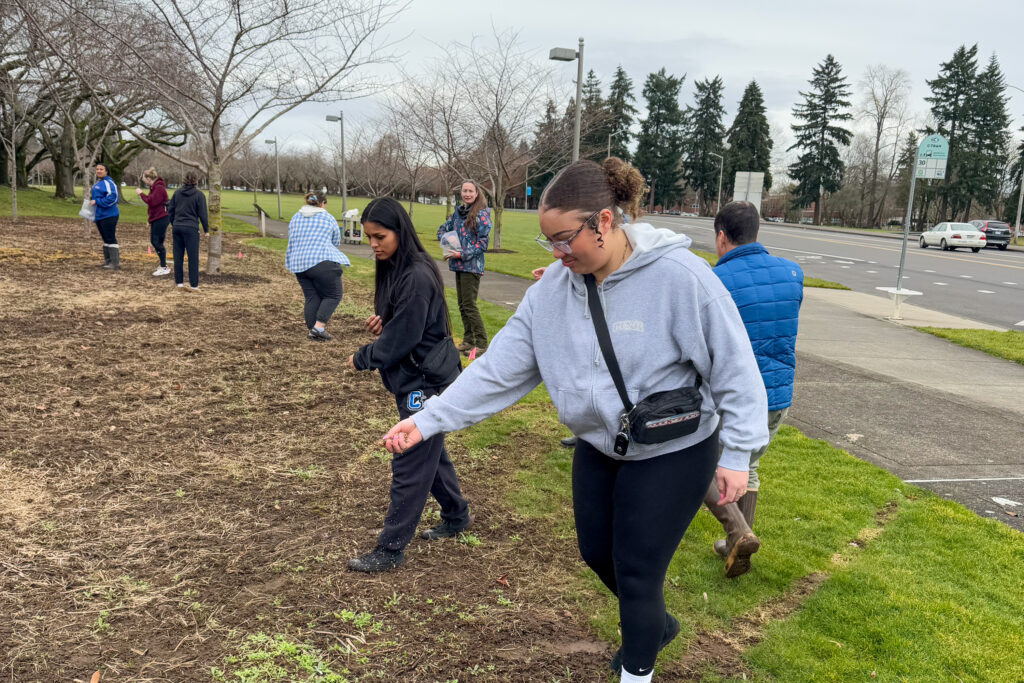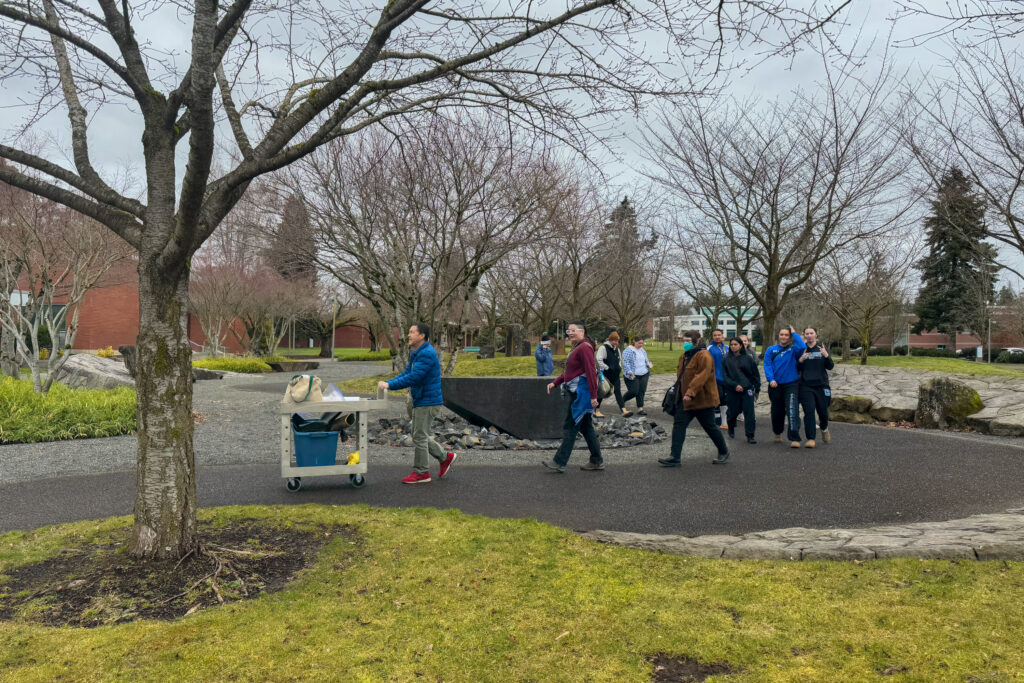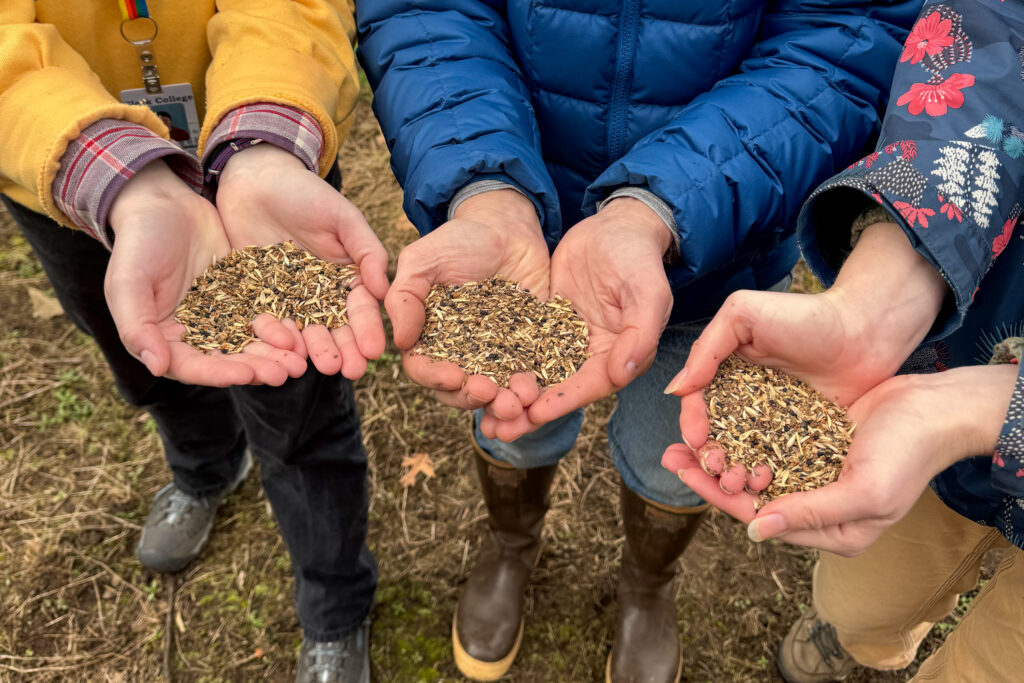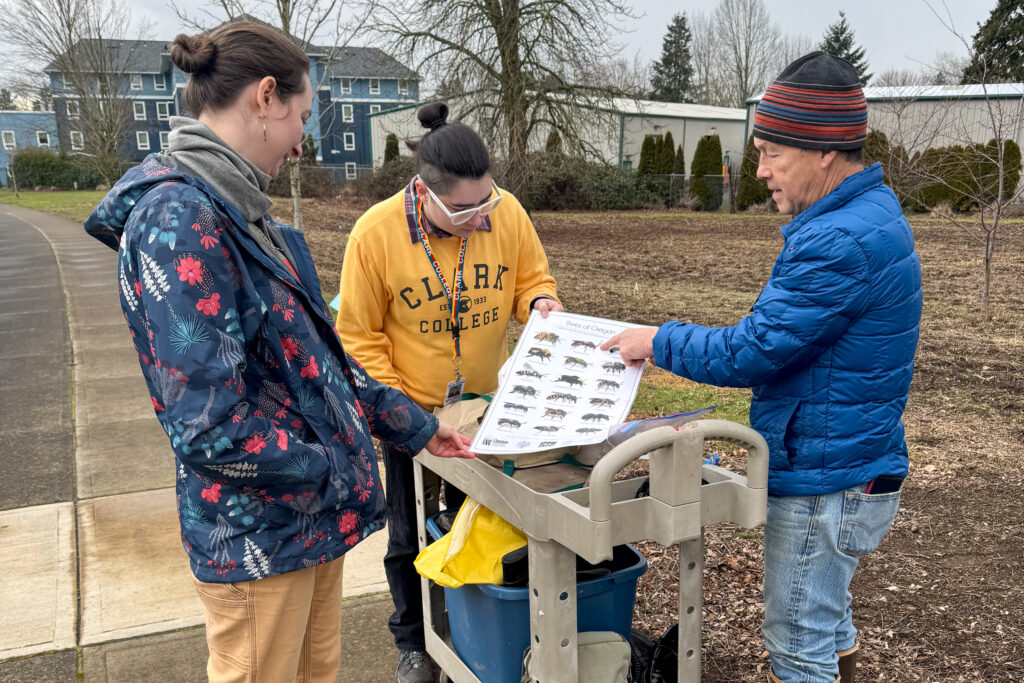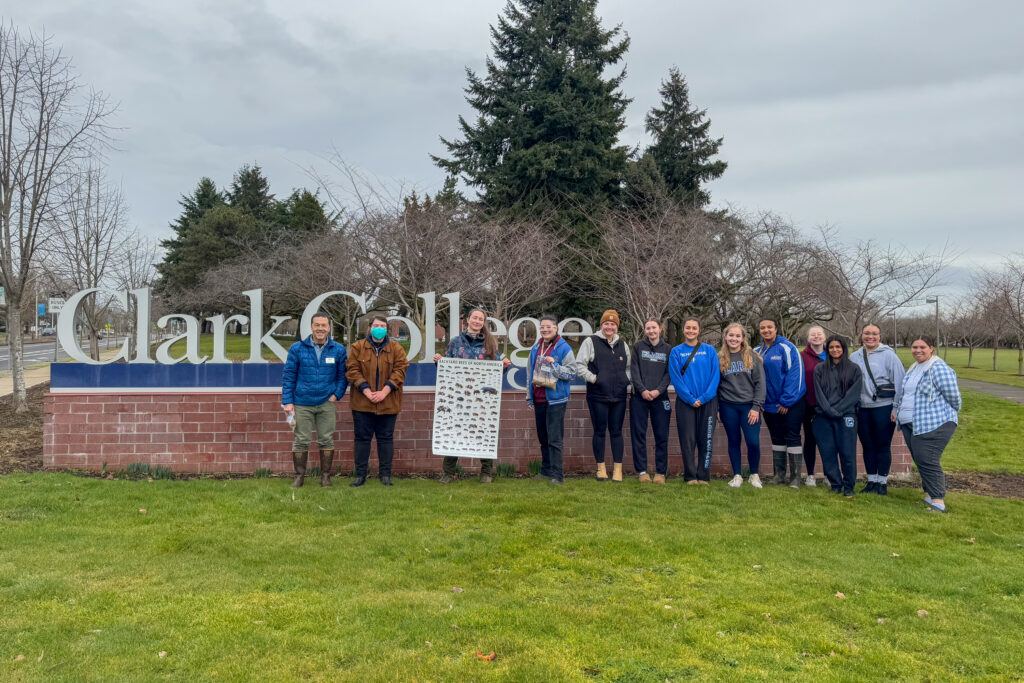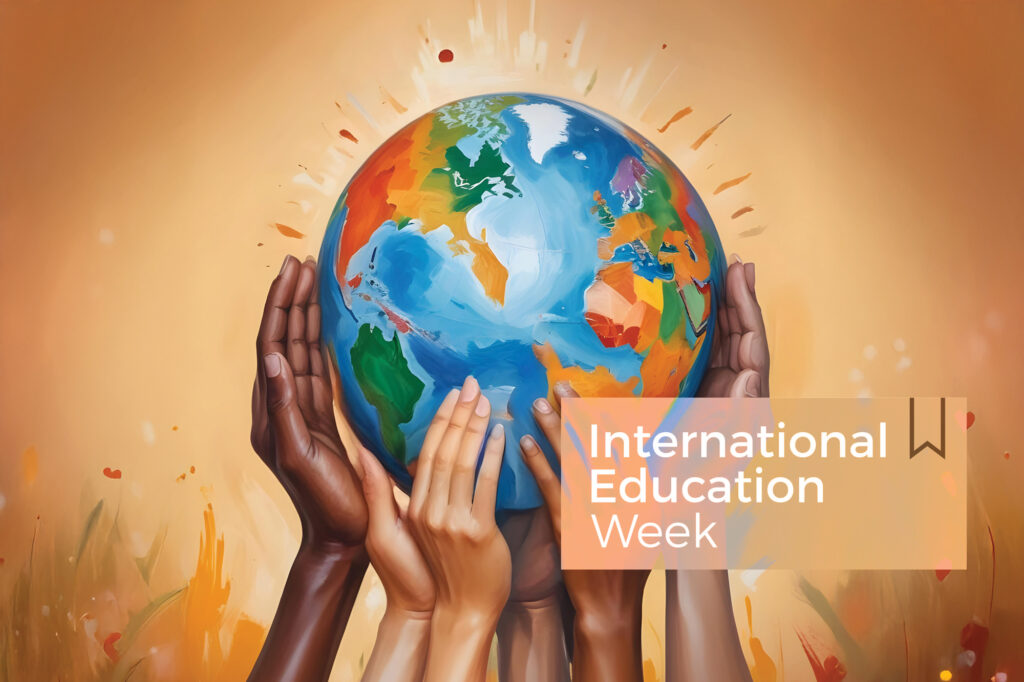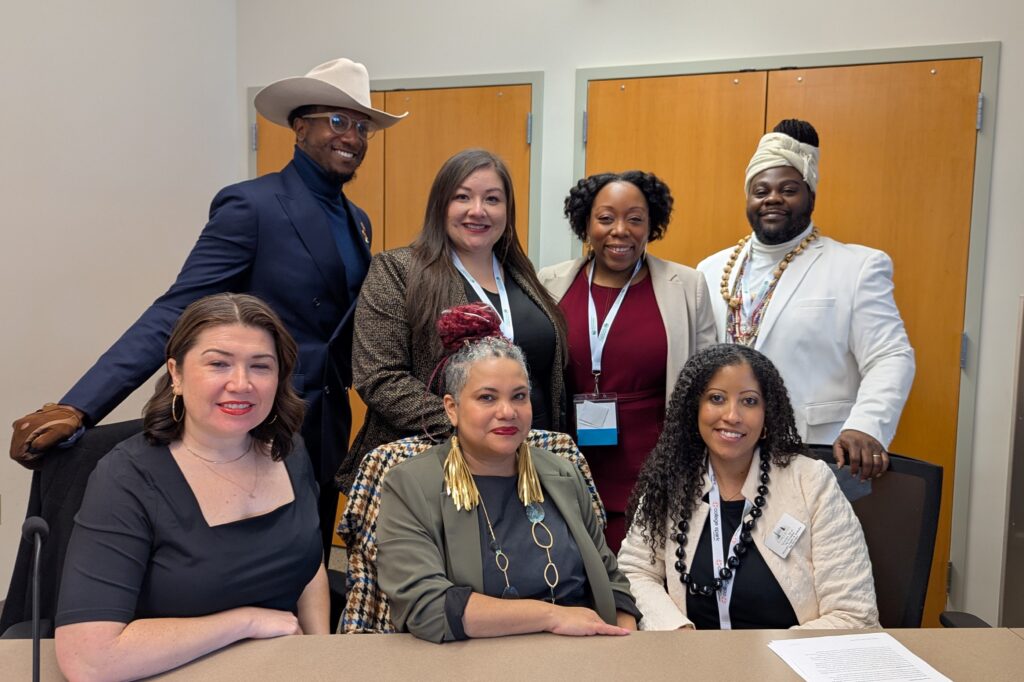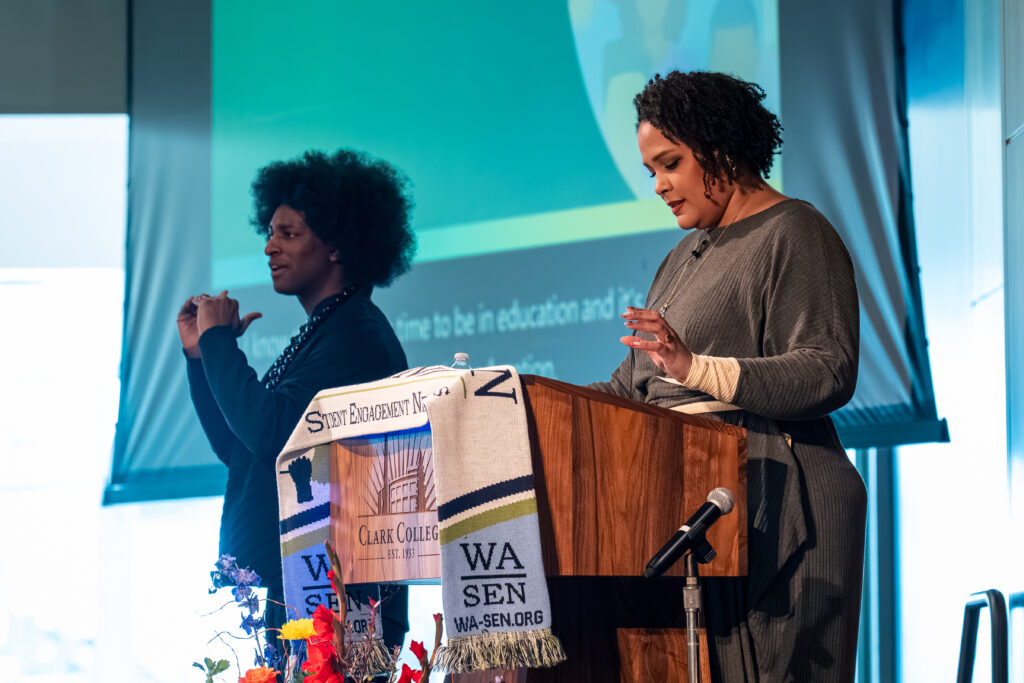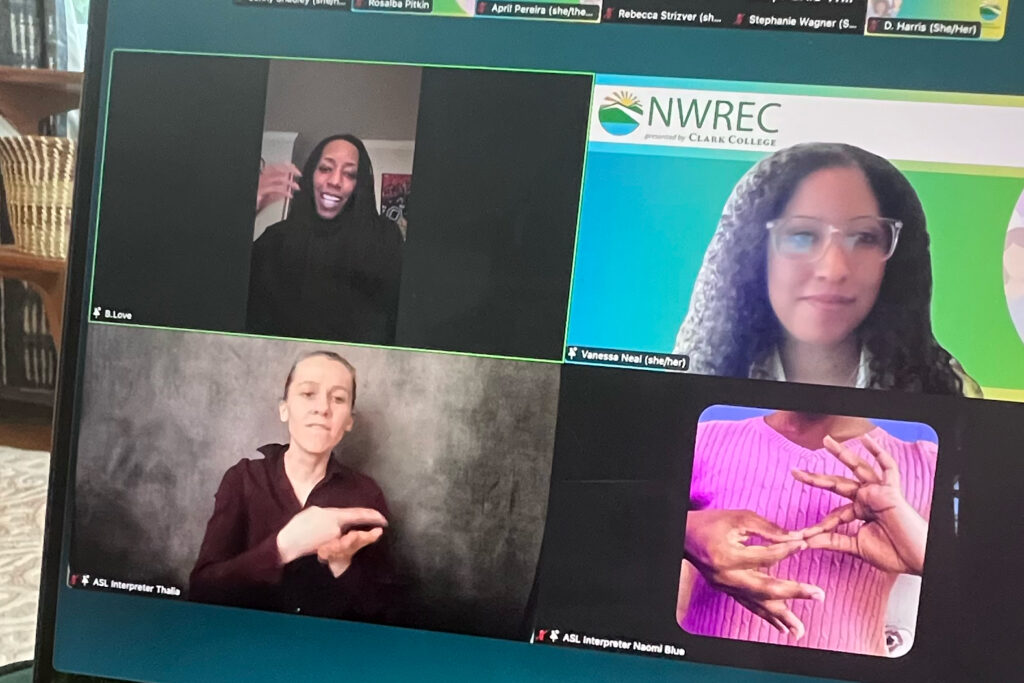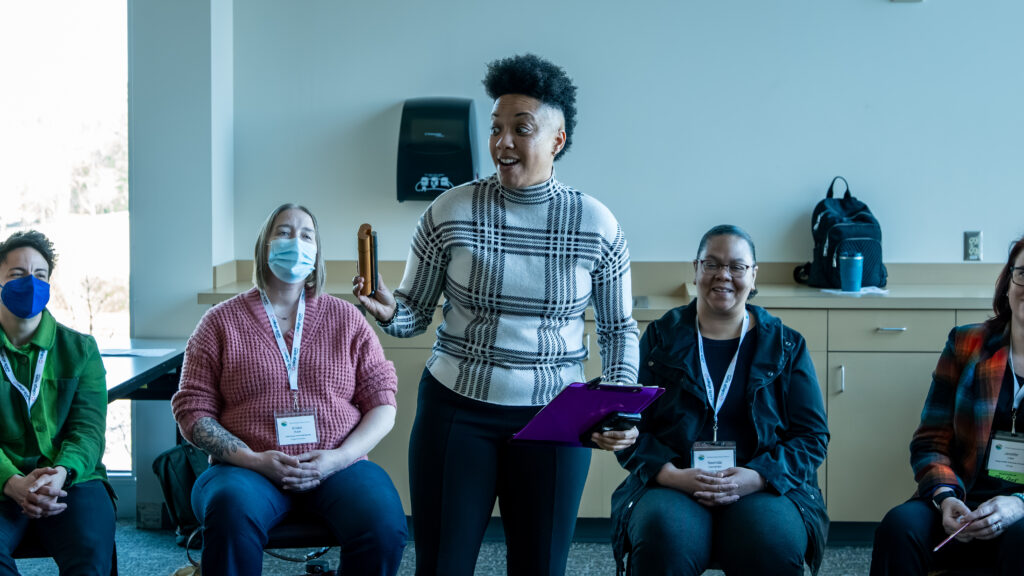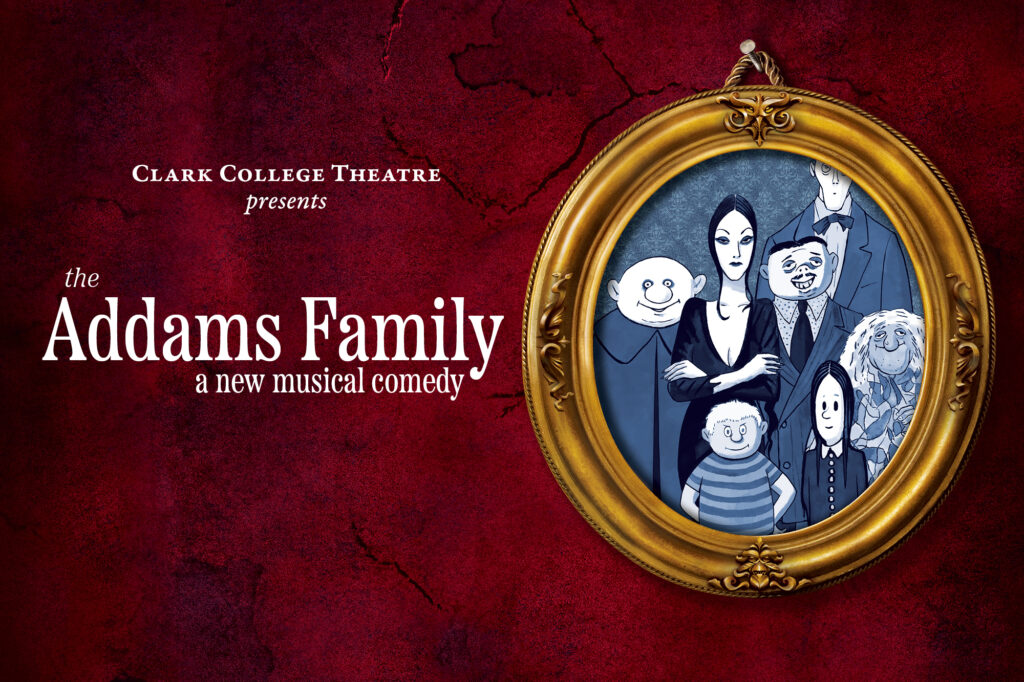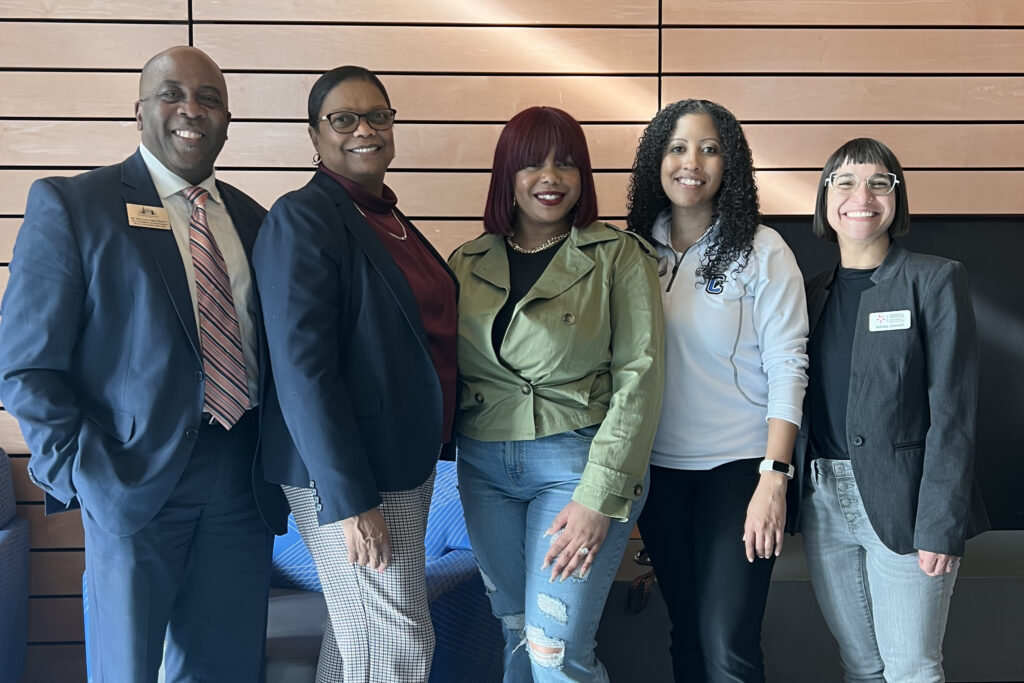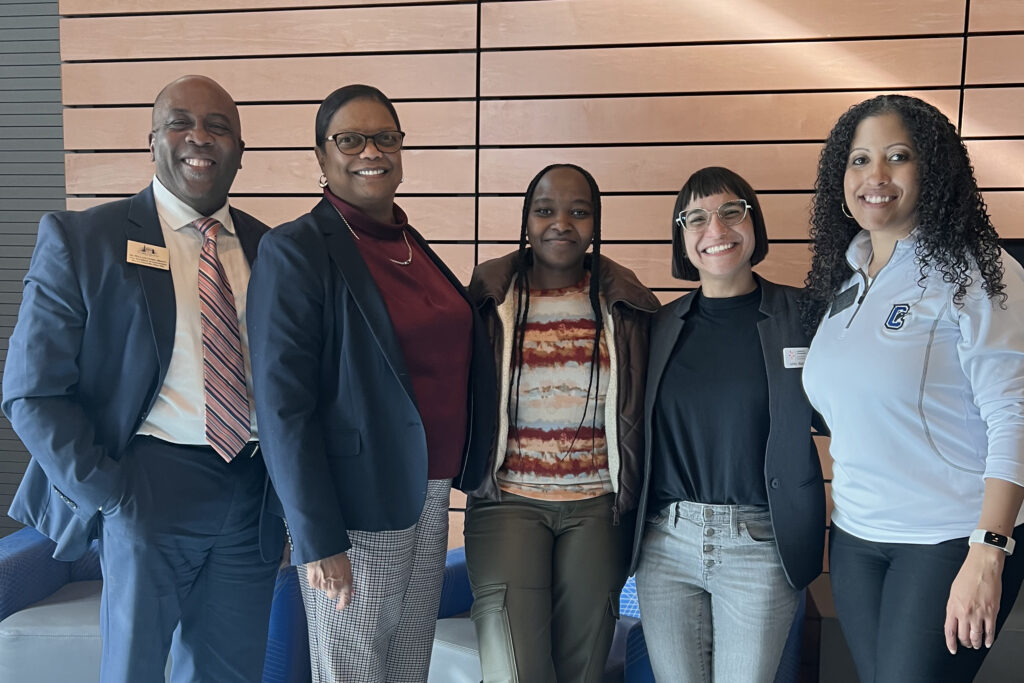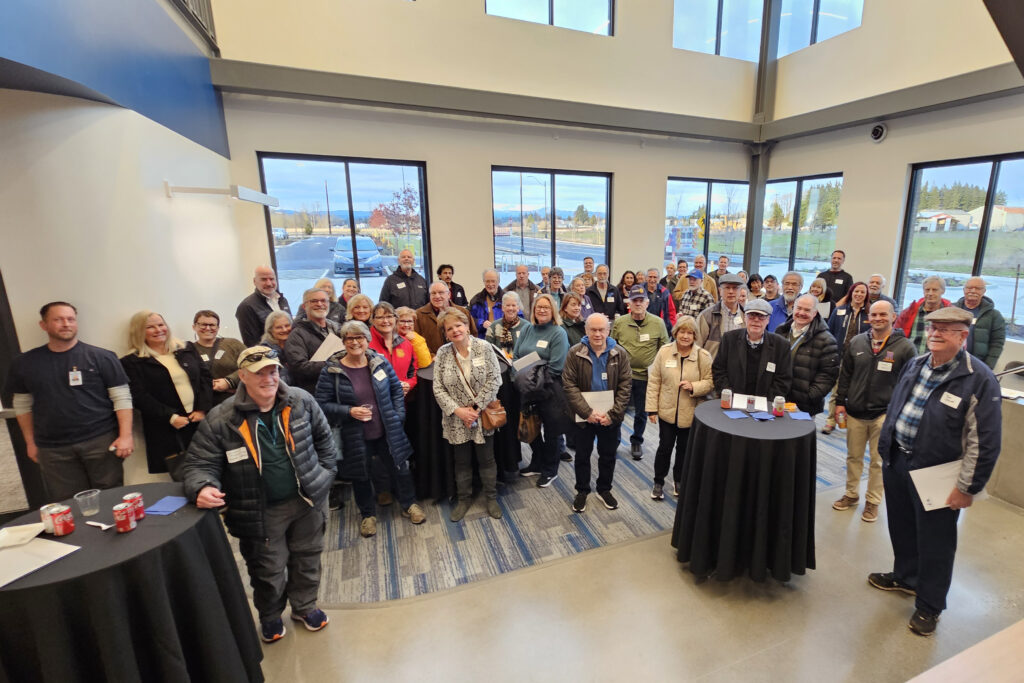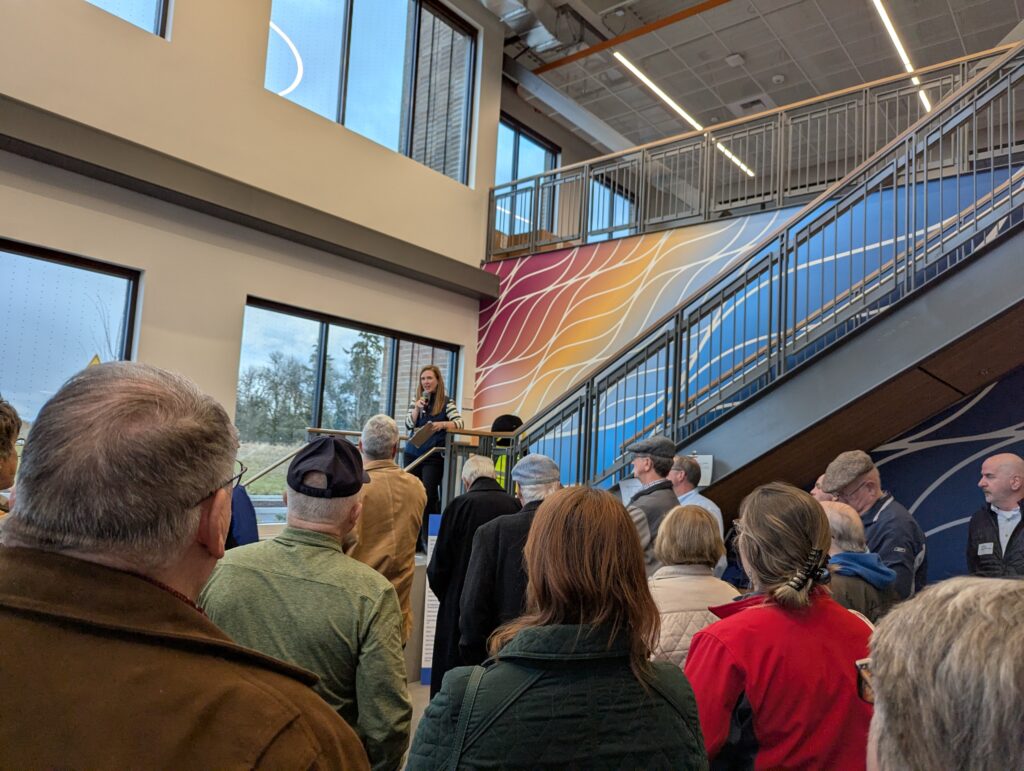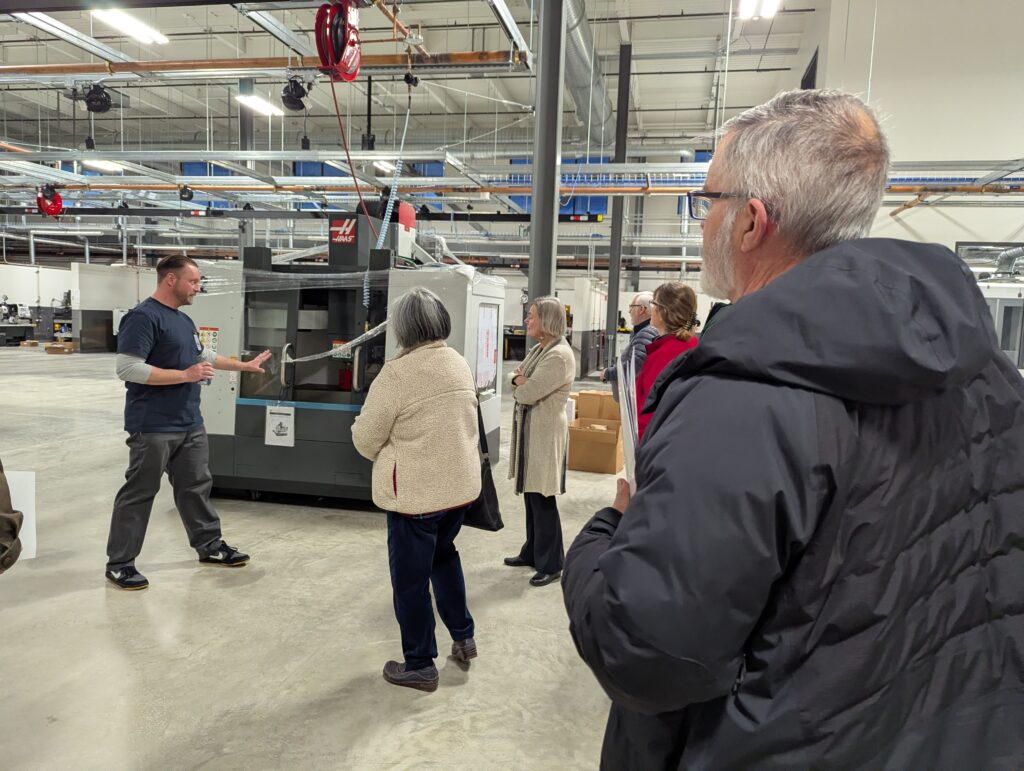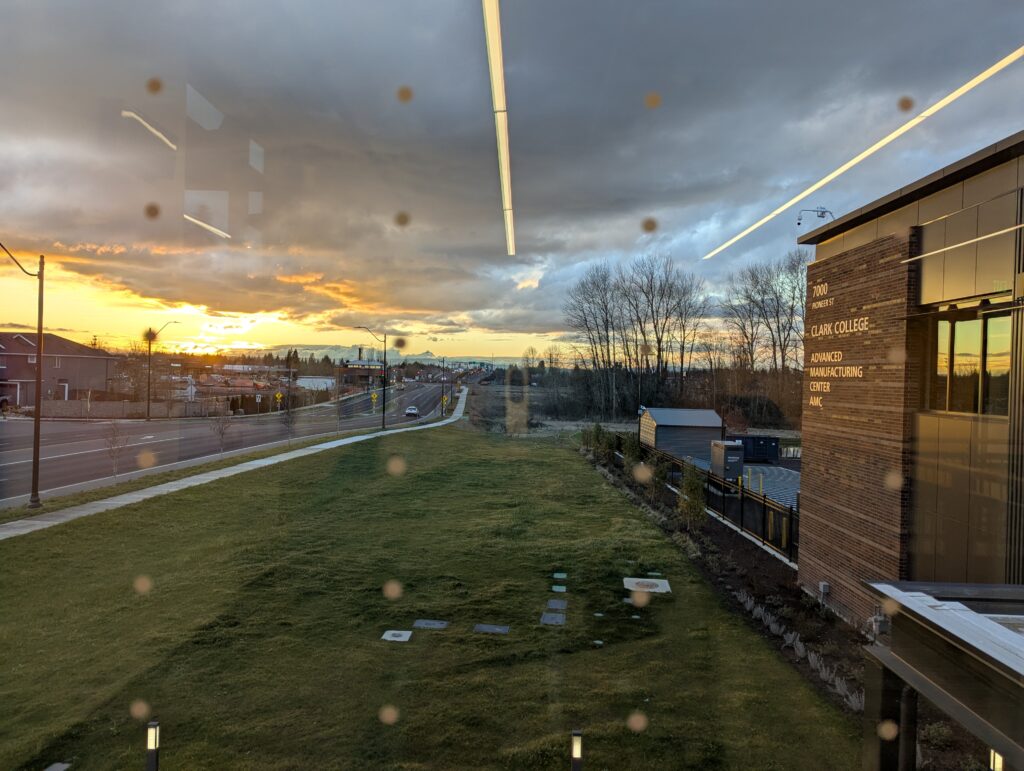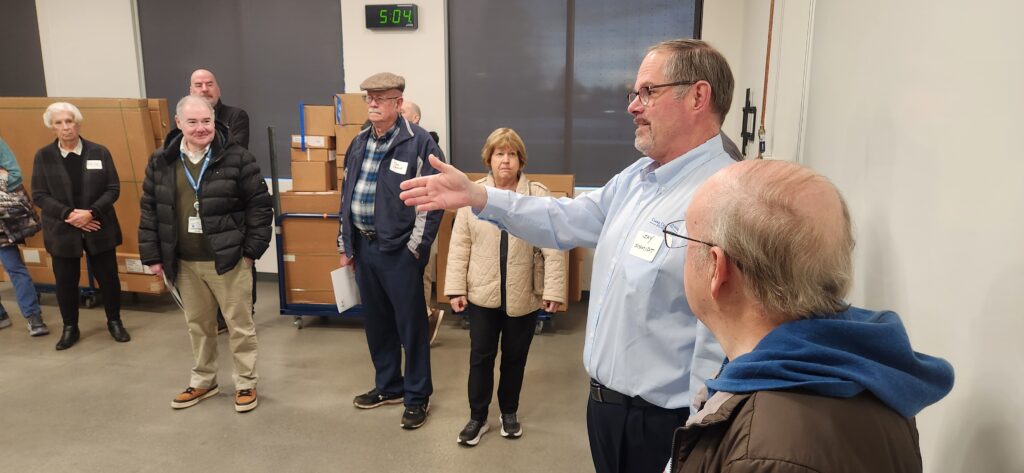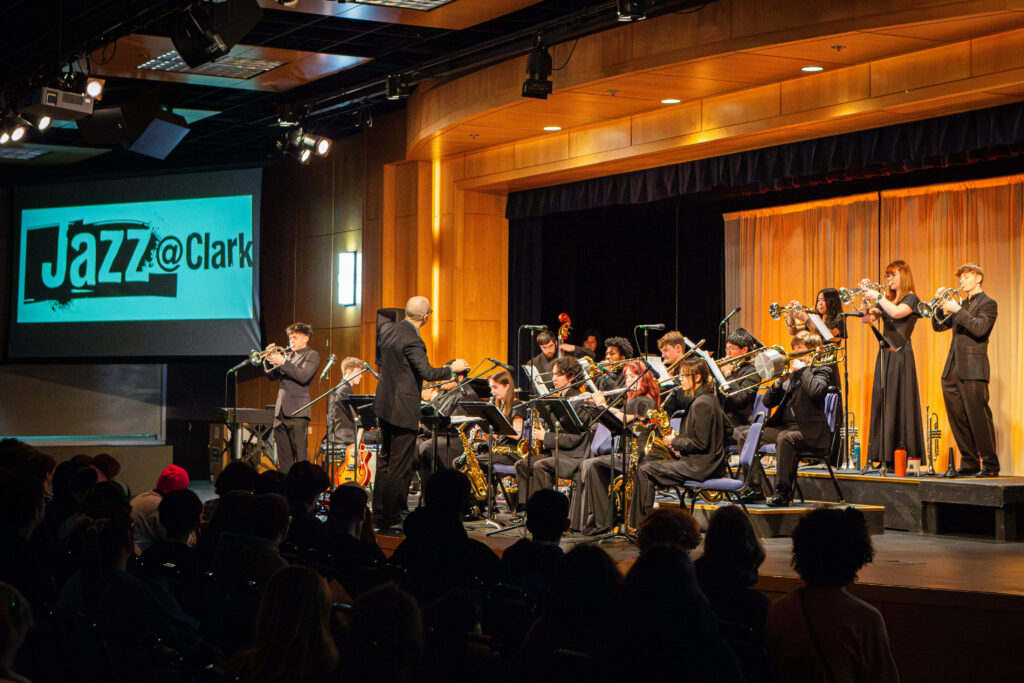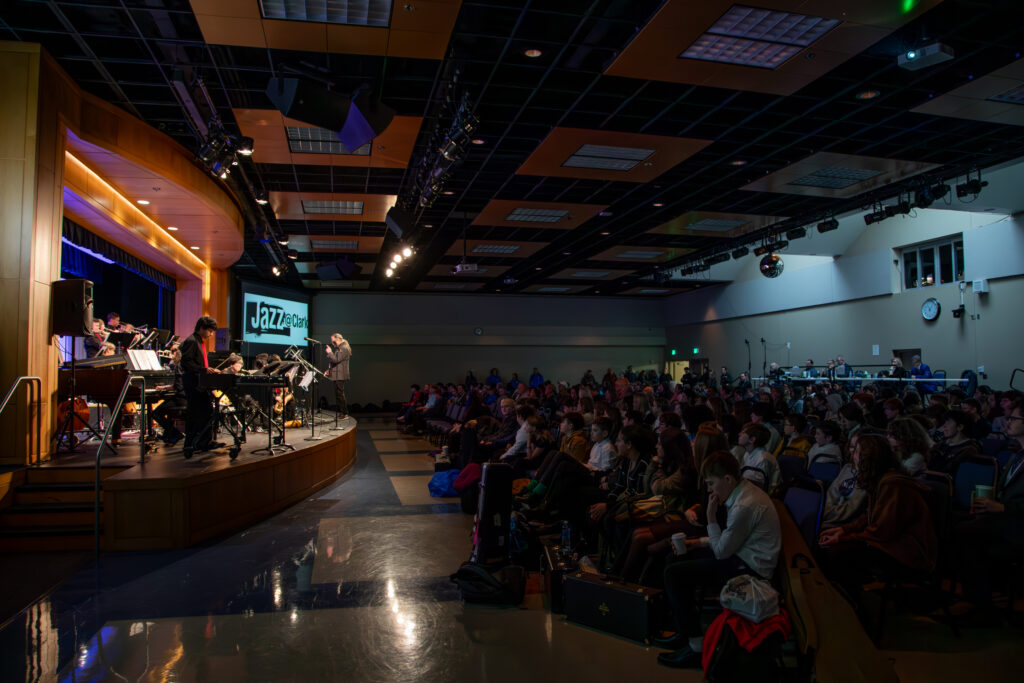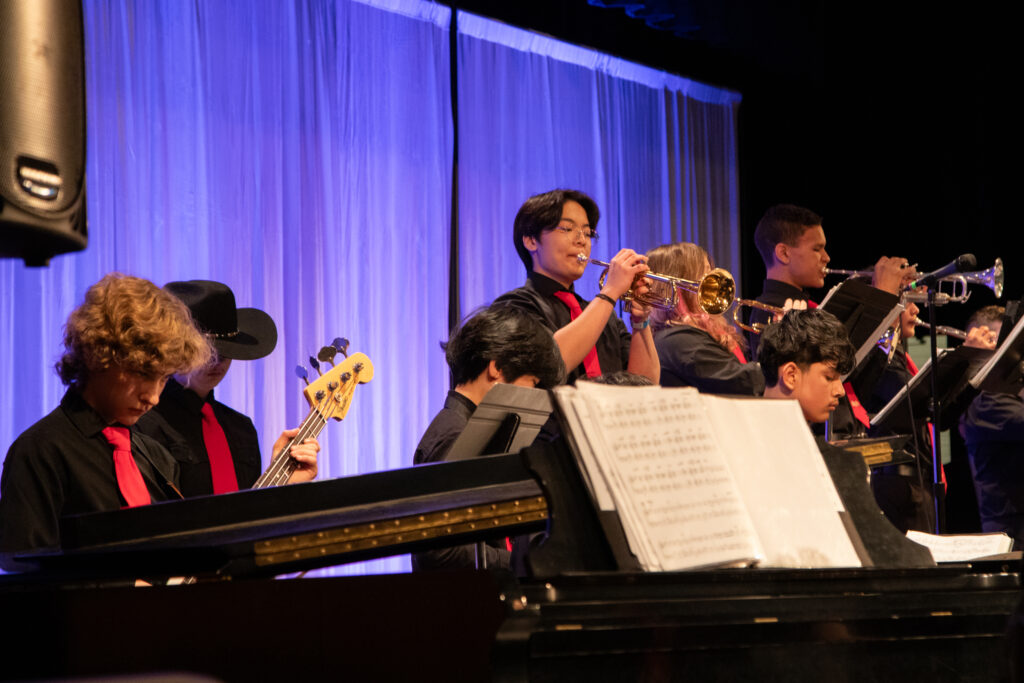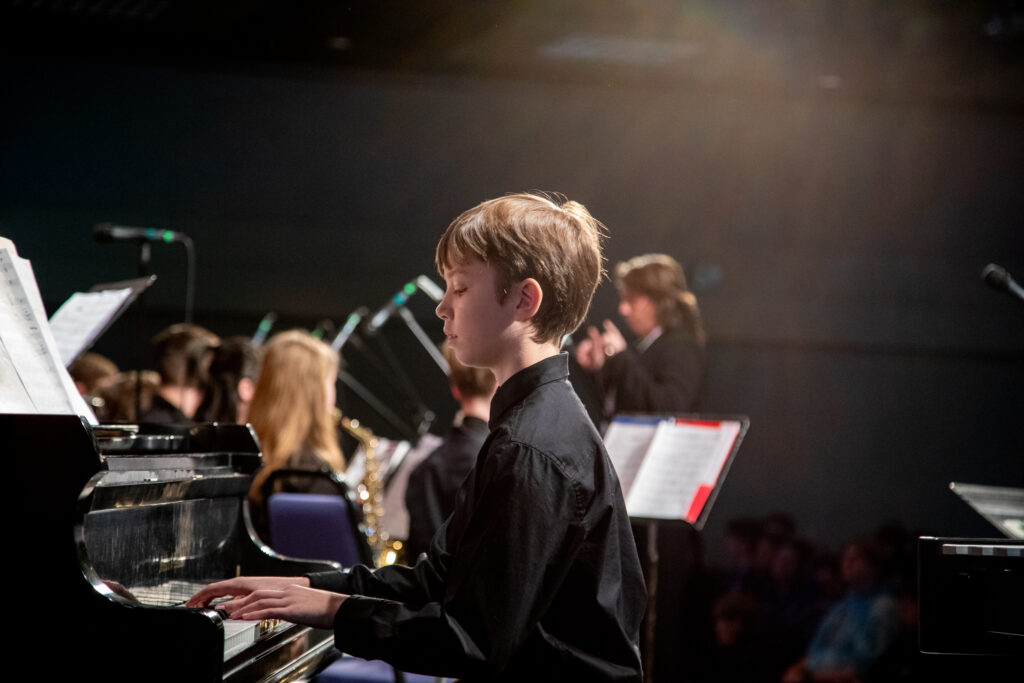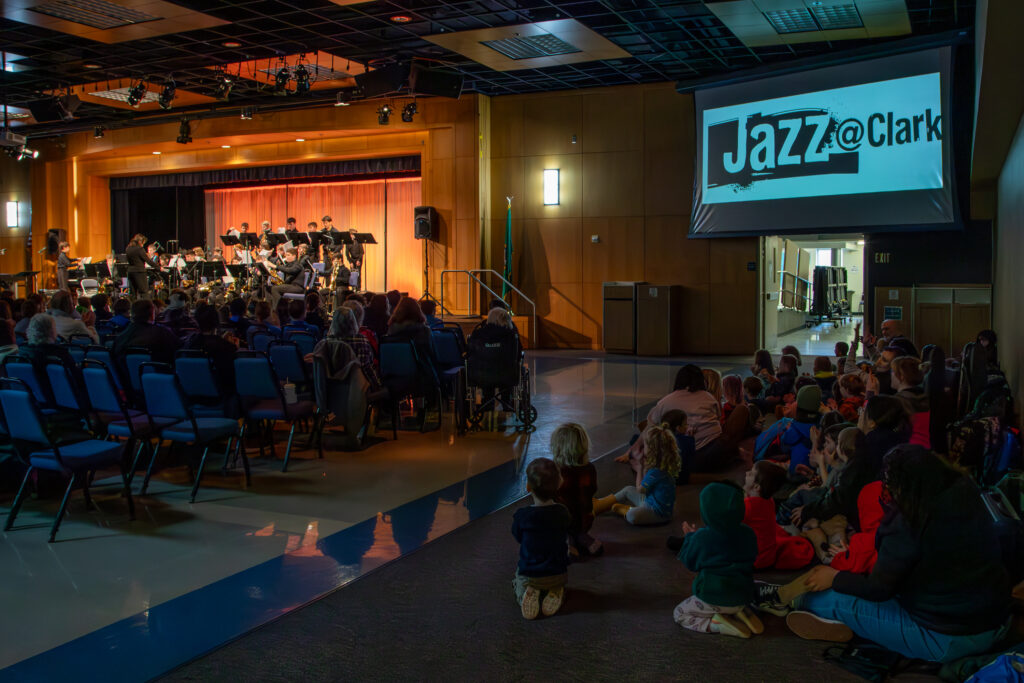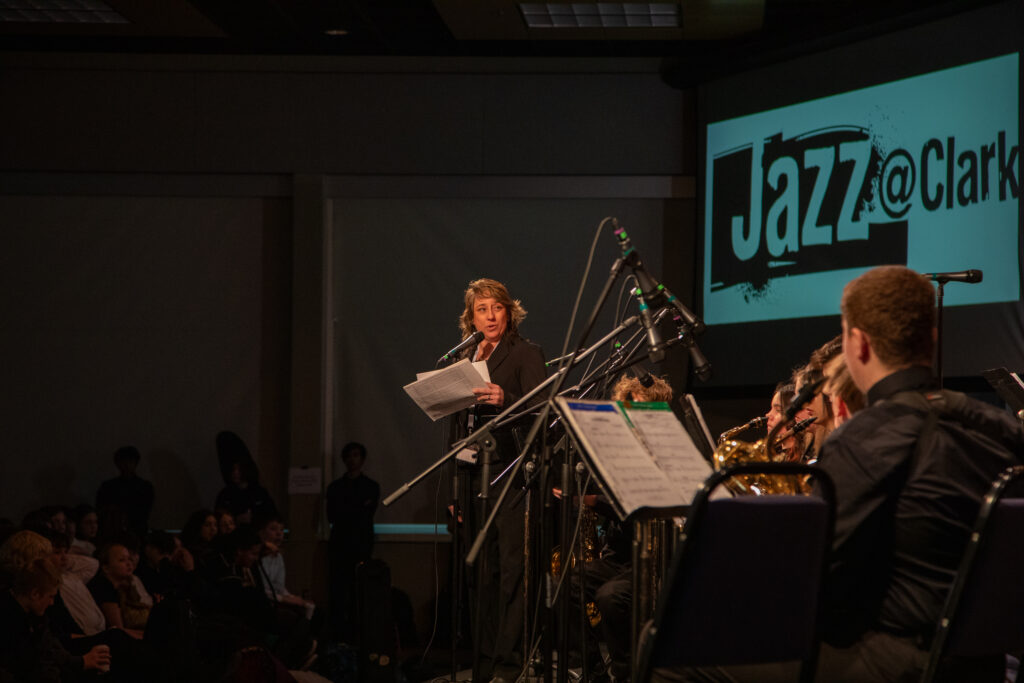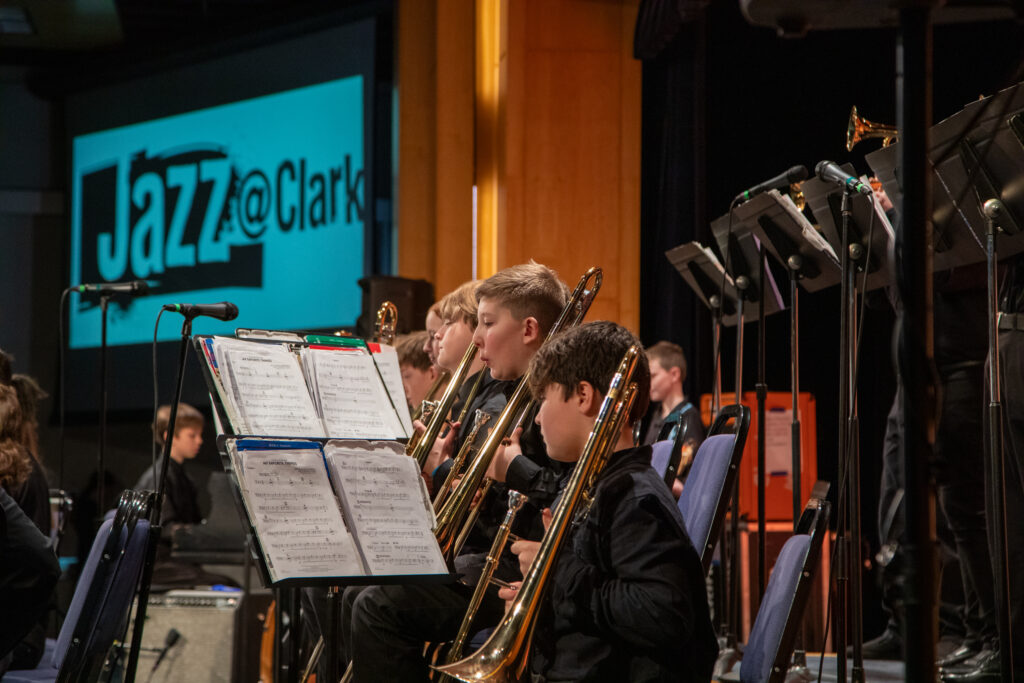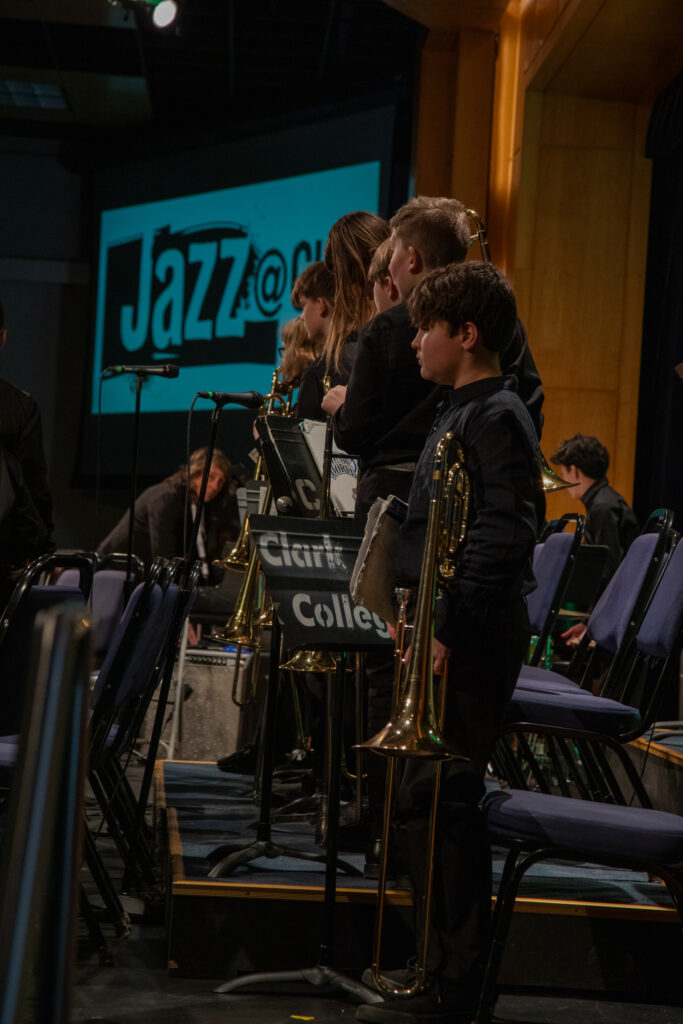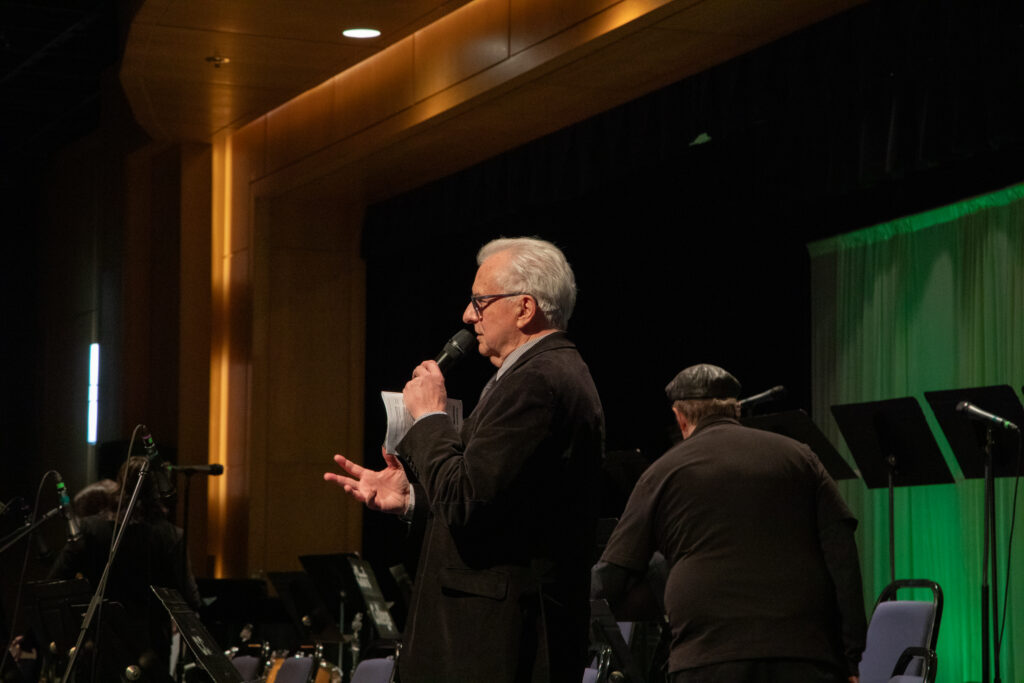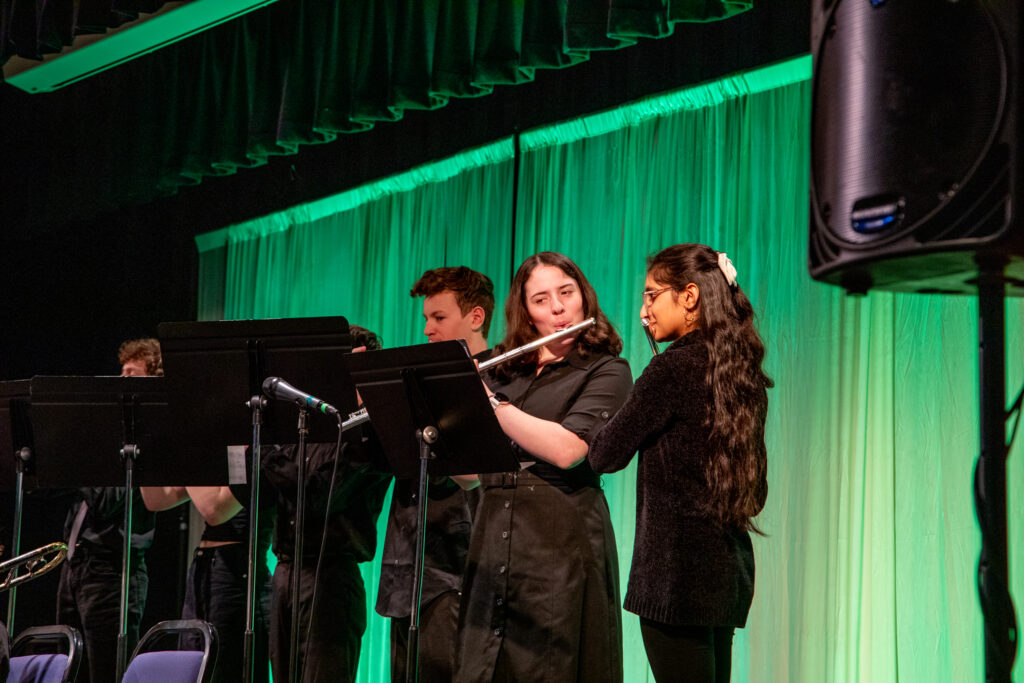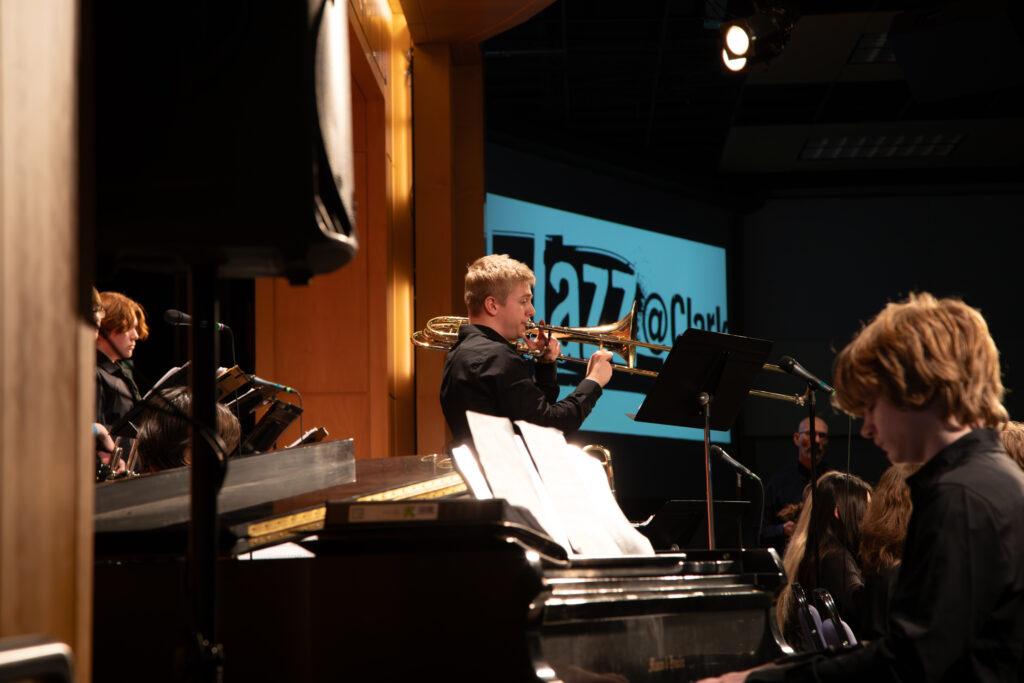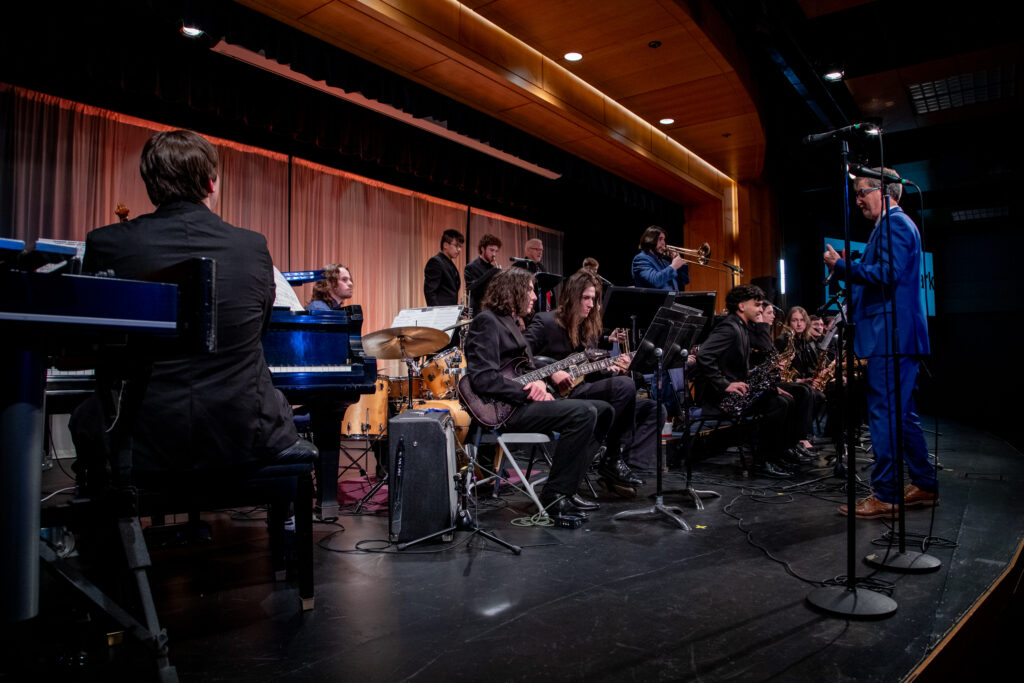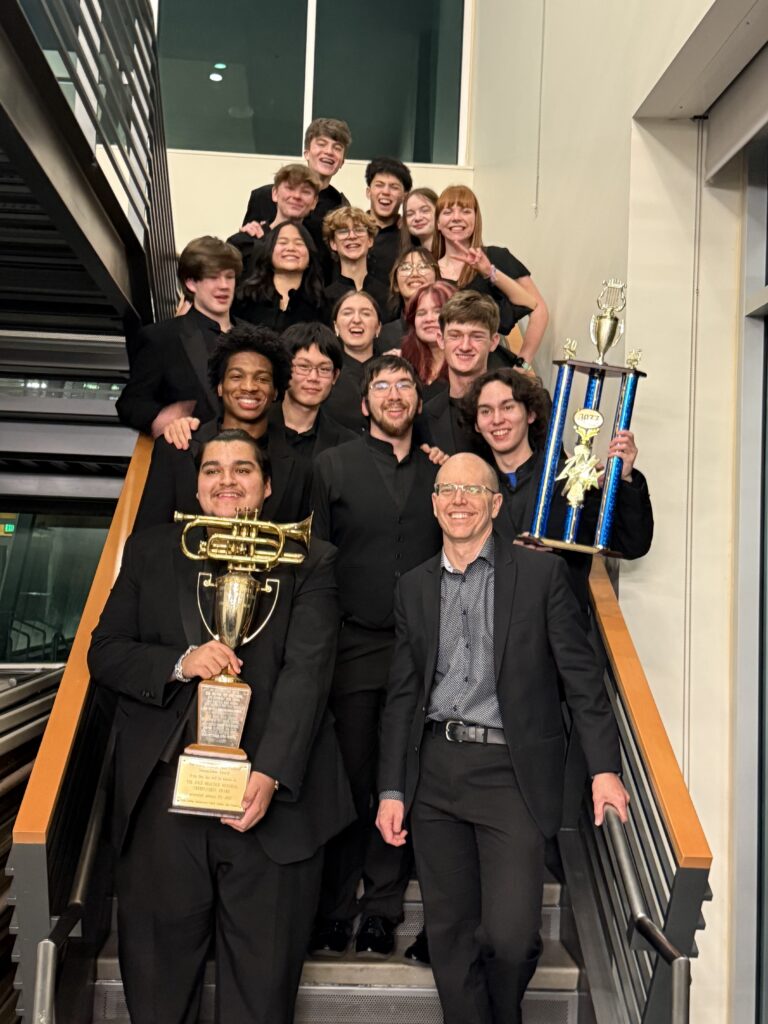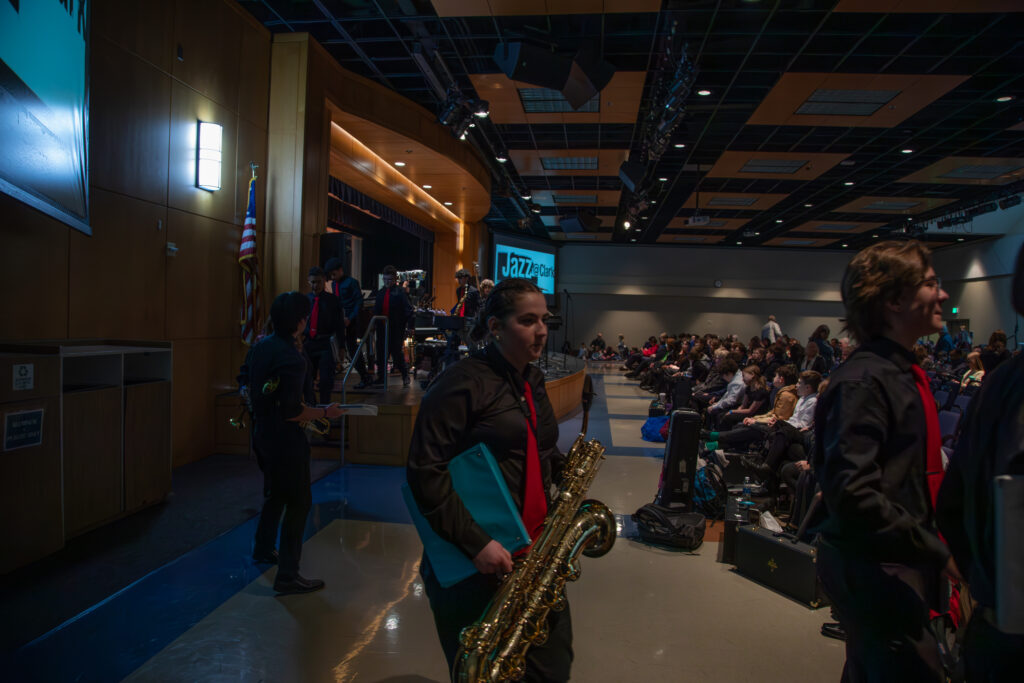Winter Students with Disabilities Luncheon
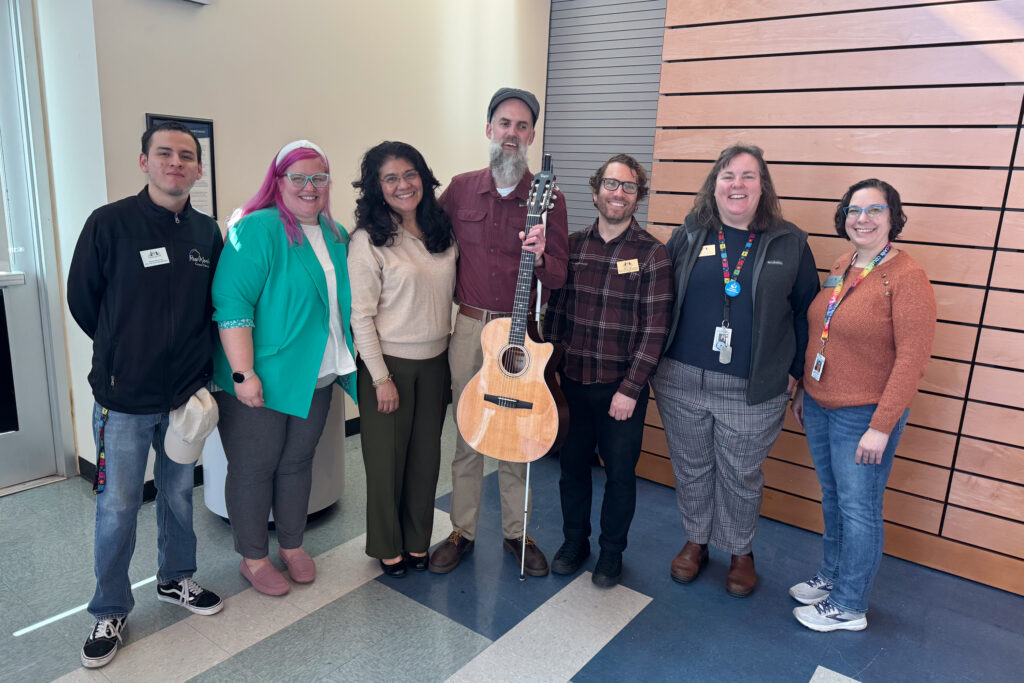
Zach Lattin, Clark College’s IT accessibility coordinator, engaged the audience with his thought-provoking presentation (including playing his guitar!) at the winter Students with Disabilities Luncheon on March 6. Hosted by the Office of Diversity, Equity, and Inclusion, the free, public event provided both meaningful conversation and a delicious free lunch. This time, students from the small-group communications class served the food.
Lattin, who tests software for accessibility standards and teaches students how to use assistive devices, spoke plainly about the advances and challenges of making a college education accessible for all.
Drawing from his own experiences navigating accessibility challenges as a student at the University of Washington, Lattin emphasized the importance of equitable access in higher education.
He said, “I didn’t always have access at UW.”
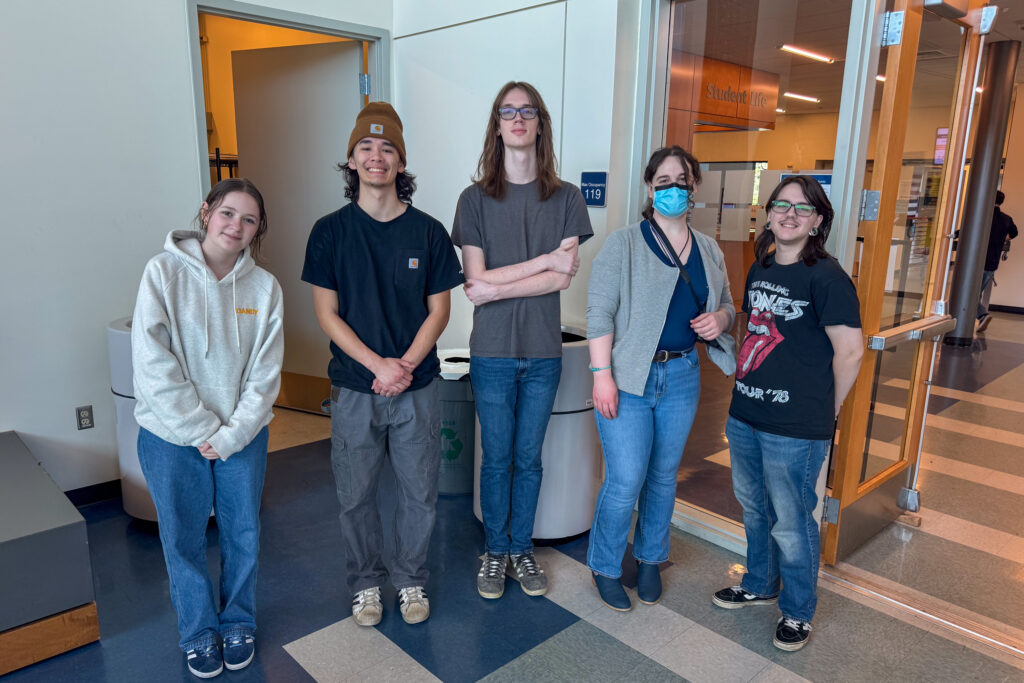
Pushing Back on Inspiration Porn
Lattin discussed how historically, the stories of people with disabilities have been used for “inspiration porn”—a term coined by disability activists Stella Young and Lydia X. Brown.
The three types of “inspiration” stories identified as “inspiration porn” include:
- Disabled person does something extraordinary, and it’s presented as inspiring because the person is disabled, not because 99% of the general population could not have achieved it.
- Disabled person does something mundane, and it’s presented as inspiring because it’s assumed disabled people are incapable of doing anything at all.
- Disabled person does something not overtly negative to disabled person, and it’s presented as inspiring because it’s supposedly magnanimous and saint-like to be nice to someone with a disability.
He said, “It’s about framing how our stories are told… If a story of yours is being framed in one of those three ways, feel free to push back on it.”
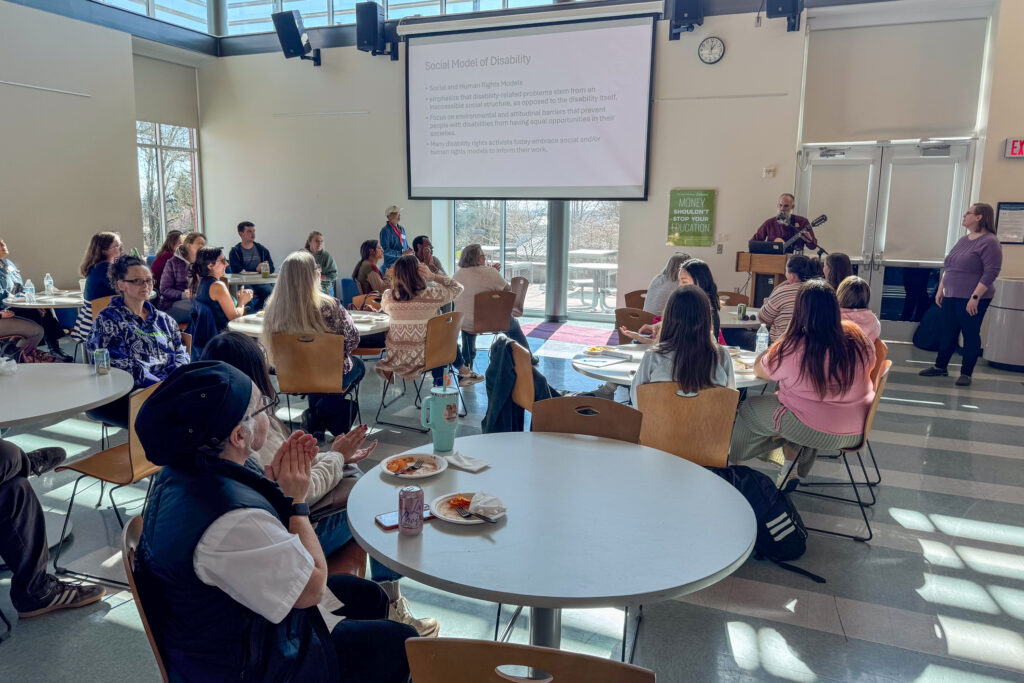
Understanding Models of Disability
Lattin discussed the issues with the charity model of disability and the medical model of disability, and talked about why we should push toward the social model of disability.
- In the charity model, people with disabilities are treated as objects of charity and pity.
- In the medical model, people with disabilities are viewed as sick with a need to be cured.
- Meanwhile, the social model focuses on how systemic and environmental issues create the primary barrier to success for people who are disabled.
On the social model, he said, “I personally believe this is what we should be moving towards.”
Lattin added, “I personally do not view my blindness as something to be cured. I see it as a lifestyle, a way that I exist, and part of my identity.”
Challenging Assumptions
To illustrate the importance of social models of disability, Lattin shared a story about his team testing the accessibility of automotive software in Clark’s mechanic shop. He asked the luncheon attendees what percent of the software they thought was accessible.
The guesses were similar: “None! Five percent!”
Surprisingly, Lattin said, the software was 95% accessible. “This tells me that the barriers to access for automotive are not technology—it’s other barriers.” It challenged even his own assumptions.
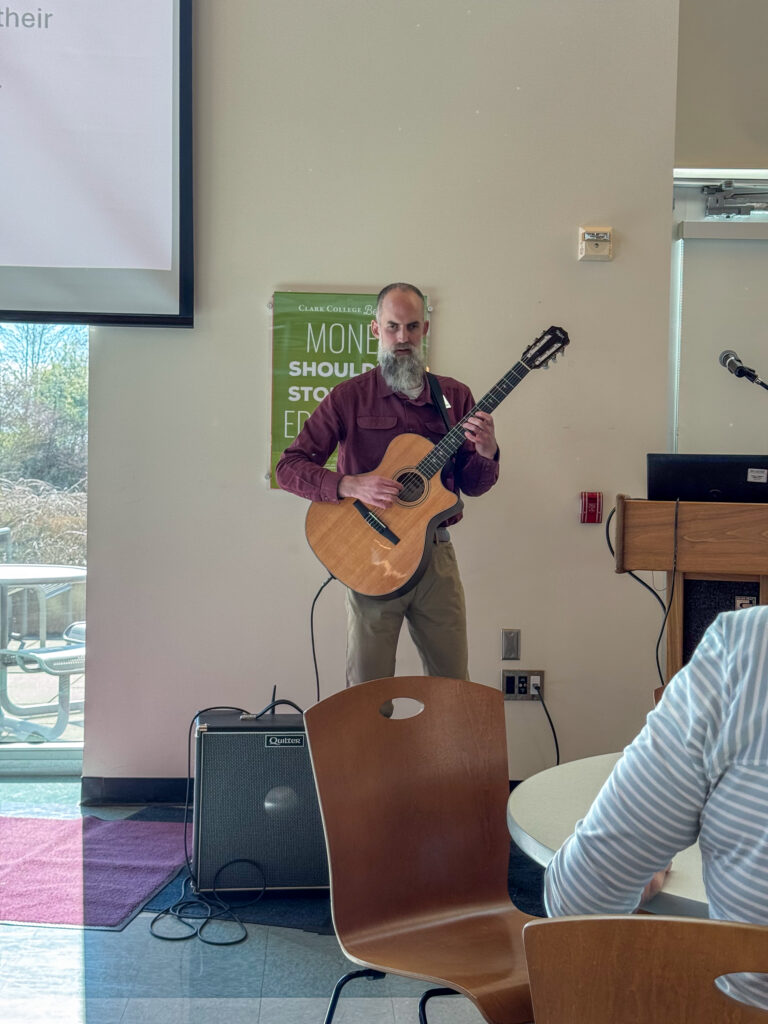
He used to have techno-utopian attitudes, believing that technology would solve access problems. But now he believes “we need to be doing more than solving problems with technology… We need to address systemic barriers.”
Ending on a High Note
Lattin gave a mini concert, playing his guitar and singing an original song. Laughing, Lattin explained the song was written for two folks on a bus who, speaking in Spanish, thought he couldn’t understand them when they said demeaning things about his disability. When they both arrived at the courthouse, they found out that Lattin would be their translator.
Further Reading
Lattin suggested multiple texts for further reading, including:
- “Disabled people are not your feel-good back-pats” by Lydia X. Z. Brown
- Models of Disability Tip Sheet from Mobility International
Connect with the Office of Diversity, Equity, and Inclusion (ODEI):
- In-person: Diversity Center, Gaiser Hall 214
- Phone: 360-992-2292
- Email: diversity@clark.edu
- Website: www.clark.edu/cc/diversity
Photos: Clark College/Carly Rae Zent
